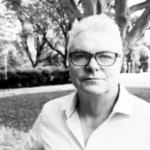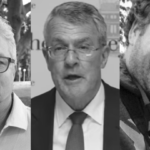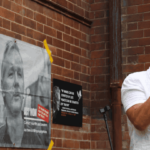McBride Heads to the High Court, After His Draconian Sentence Stands on Appeal

ACT Court of Appeal Justice Belinda Baker took the bench on Wednesday, 28 May 2025 to deliver the outcome of Australian Defence Force whistleblower David McBride’s appeal against his conviction and sentence, to simply announce that the appeal had been dismissed and then she promptly left the courtroom all within under a minute. So, McBride is now seeking special leave to appeal to the High Court.
In a general message to McBride’s throngs of supporters, his lawyer, Eddie Lloyd, explained that all gathered in the courtroom were left aghast, as no attempt had been made to address the reasons why David, a lawyer himself, continues to be serving a head sentence of 5 years and 8 months, although Baker did further note the reasons would be published later that day.
The 28 May 2025 findings of Baker and fellow ACT Justices Louise Taylor and Wendy Abraham detailed reasons for all grounds being dismissed including why David’s not eligible to serve his time in the community, which is due to the lengthy sentence he received. Although such reasoning does seem to be at odds with the corresponding decision to grant him an extra short non-parole period.
A statement released after the appeal outcome was announced found a stoic McBride asserting that he’s ready to continue his “pilgrimage for justice”, he underscored that others “who have stood up for what is right in history” have suffered far worse fates, and he said throughout his ordeal he’s kept his “oath to the people of Australia”.
Lloyd pointed out that the defence was not so much shocked by the rejection of David’s appeal against conviction, as they’d always been planning on taking that matter to the High Court of Australia. However, due to the extreme nature of his sentence, a lessening of its severity had been expected at least in regard to one of the six grounds put to the court.
The act of whistleblowing
McBride served two tours of duty in Afghanistan over 2012 and 2013, as an ADF legal officer, and during his time with the Australian military, he’d been tasked with teaching troops the rules of engagement and his position also saw him making soldiers aware of the terms of the Public Interest Disclosure Act 2013 (Cth), which are laws governing public service whistleblowing.
The issue that triggered McBride’s disclosures regarded then Chief of the Defence Force David Hurley announcing rules of engagement reforms in late 2013. Puzzled by this, McBride queried the decision and was provided with a number Afghan incident briefs, which he considered were flimsily built cases being used to prosecute soldiers, his clients, without grounds for reasonable suspicion.
The then ADF lawyer raised the reports with his superiors, claiming they provided no reason to reform the rules of engagement and further, the attempted prosecutions were unlawful. Yet, when this was unresolved, McBride provided two ABC journalists with classified documentation in late 2014, regarding the dubious cases that he considered were devoid of required legal prerequisites.
The initial two journalists were not interested in the issue McBride was raising in regard to the attempted scapegoating of regular soldiers. However, in 2016, another ABC journalist then contacted McBride outlining that the documents he’d presented contained evidence of Australian special forces troops committing alleged war crimes, and therefore, he was planning on exposing them.
This resulted in 2017’s The Afghan Files report, which exposed SAS war crimes to the Australian public, and subsequently led to the arrest of McBride on 5 September 2018, and his being charged with five serious criminal offences.
ACT Supreme Court Justice David Mossop then sentenced McBride to 5 years and 8 months prison time, with non-parole set at 2 years and 3 months on 14 May last year, after David pleaded guilty to three offences, following the court denying him the ability to put his “official duty” defence to a jury.
The charges McBride pleaded guilty to included one count of theft, contrary to section 131.1(1) of the Criminal Code Act 1995 (Cth), which carries a maximum penalty of ten years imprisonment, along with two counts of unlawfully communicating naval, military or air force information, contrary to section 73A(1) of the Defence Act 1903 (Cth), which too carries up to 10 years inside.
Appeals dismissed
McBride’s single ground of appeal against his conviction was that the discharging of his duty he pledged to do under the official oath he swore on joining the ADF and the “official duty” referred in section 73A(1) of the Defence Act, ultimately mean upholding what is in the Australian public interest, and as that’s what he’d done in blowing the whistle, he’d therefore, committed no crimes.
The appeals court, however, agreed with Justice Mossop, who found that the duty McBride and all other ADF personnel swear to uphold involves following official orders and does not involve breaking them.
However, critics of this ruling consider it a reversal of the findings of the 1945-46 Nuremberg Trials, which led to the understanding that the “just following orders” defence does not protect soldiers against prosecution for the commission of criminal acts that their superiors have told them to perpetrate. And this is the argument that McBride is hoping to put to the High Court.
Amongst the grounds that were dismissed against his lengthy gaol sentence were that McBride was seeking to remedy an injustice, that he honestly believed he was acting lawfully, his mental health condition was not considered in sentencing, his moral culpability should not be considered high and the primary judge had been in error in finding a significant level of harm was done to the community.
The final ground that was dismissed involved the judge failing to consider whether David could serve his time in the community on an intensive correction order (ICO). However, this ground was too denied because ICOs are only available for sentences under four years in length, due to the fact that sentences any longer obviously represent such serious offending that time inside is necessitated.
However, when providing McBride with a non-parole period of 2 years and 3 months, Justice Mossop did remark that although it represented “a smaller than usual proportion of the head sentence, it nevertheless reflects the minimum period of fulltime detention necessary to fulfil the purposes of sentencing”.
So, McBride was considered eligible for a shorter than usual non-parole period, but an extra hefty head sentence at the same time, and this just happened to ensure that he’d be required to spend at least a couple of years inside Canberra’s Alexander Maconochie Centre.
To the highest authority
McBride now has 28 days to apply for special leave to the High Court, where he wants to appeal the original findings in regard to the question of the duty he owed in his position as a member of the ADF. And he currently becomes eligible to apply for release on parole to new attorney general Michelle Rowland as of the 13th of August 2026.
A message posted yesterday by McBride’s supporters underscores that David’s case matters to all Australians, “because it cannot be a crime to expose a crime”, and “it cannot be illegal to tell the truth”, while further insisting that “when a soldier acts on conscience to report wrongdoing, their actions must be protected”.
“We have always believed that the kind of public interest issues and constitutional issues that are within this case, can only really be grappled by the High Court,” Eddie Lloyd said in concluding her message to the public on Wednesday.
If it is illegal for David to tell the truth, “if he must just obey orders in the military, even when he sees wrongdoing by the leadership and goes to gaol for that,” the lawyer continued, “we cannot let that stand.”
“We must all stand by David McBride in this case because it affects all of us. We could all be the next David McBride.”







